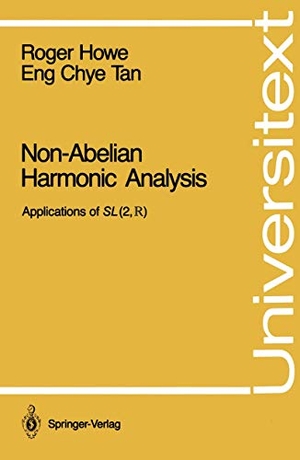Für statistische Zwecke und um bestmögliche Funktionalität zu bieten, speichert diese Website Cookies auf Ihrem Gerät. Das Speichern von Cookies kann in den Browser-Einstellungen deaktiviert werden. Wenn Sie die Website weiter nutzen, stimmen Sie der Verwendung von Cookies zu.
Cookie akzeptieren
- Springer New York
- 1992
- Taschenbuch
- 276 Seiten
- ISBN 9780387977683
This book mainly discusses the representation theory of the special linear group 8L(2, 1R), and some applications of this theory. In fact the emphasis is on the applications; the working title of the book while it was being writ ten was "Some Things You Can Do with 8L(2). " Some of the applications are outside representation theory, and some are to representation theory it self. The topics outside representation theory are mostly ones of substantial classical importance (Fourier analysis, Laplace equation, Huyghens' prin ciple, Ergodic theory), while the ones inside representation theory mostly concern themes that have been central to Harish-Chandra's development of harmonic analysis on semisimple groups (his restriction theorem, regularity theorem, character formulas, and asymptotic decay of matrix coefficients and temperedness). We hope this mix of topics appeals to nonspecialists
Mehr
Weniger
zzgl. Versand
in Kürze